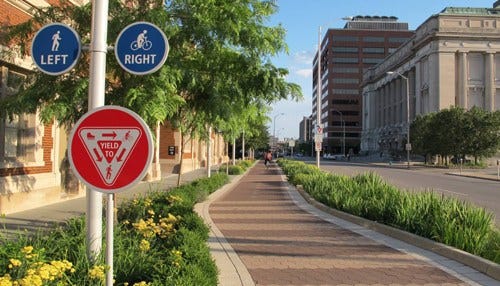Last-Place Ranking Puts Focus on Fitness
 The Indianapolis MSA has ranked last for two consecutive years.
The Indianapolis MSA has ranked last for two consecutive years.
Subscriber Benefit
As a subscriber you can listen to articles at work, in the car, or while you work out. Subscribe NowThe director of an Indiana health advocacy group says, at a time when a "culture of health brings economic vibrancy," the results of a national fitness report are troubling. The American College of Sports Medicine 2016 American Fitness Index ranks Indianapolis last among the nation’s 50 largest metropolitan areas. Health By Design Executive Director Kim Irwin says issues like limited physical activity and high smoking rates result in obesity and chronic diseases. She says that can lead to higher health costs and decreased productivity for Indiana businesses.
The Indianapolis MSA has ranked last for two consecutive years. The report shows a 6.5 percent decrease in people in "excellent or very good health" from 2015 to 2016, as well as an 11 percent drop in people who walk or bike to work. It suggests increases in the amount of people who reported any days when their physical or mental health was not good in the past 30 days.
The news wasn’t all bad for Indianapolis. The organization scored the MSA higher than the target goal for farmers’ markets per capital, golf courses per capita and a high state requirement level for physical education classes.
You can see the full report by clicking here.
Irwin says, while the results are "very disappointing," there is a lot of good work being done to improve the community’s health. She cites organizations including Top 10, which aims to improve physical activity and nutrition levels, Jump in For Healthy Kids, targeting child obesity and Health by Design, which works to ensure communities have amenities and infrastructure that promote healthy living.
She says other initiatives moving forward could also have a positive impact on community health. Earlier this month, the Metropolitan Development Commission in Indianapolis approved the city’s first pedestrian plan. Healthy by Design says the strategy gives a framework for improving walkability. Last week, the City-County Council in Indianapolis approved a measure to send the decision on a potential tax hike to pay for expanded mass transit to Marion County voters.
